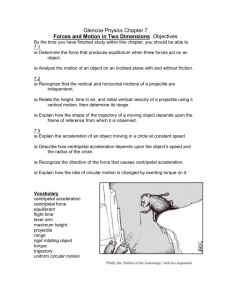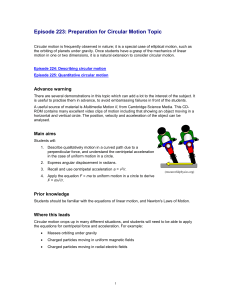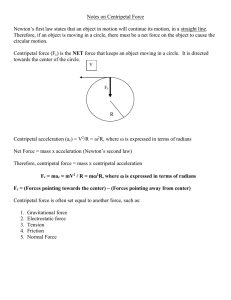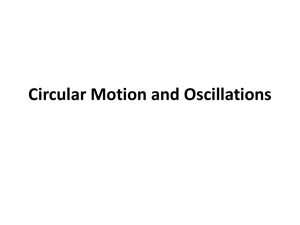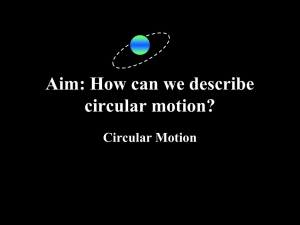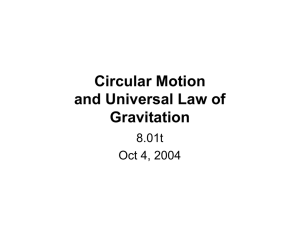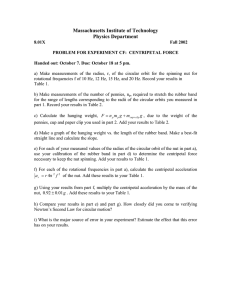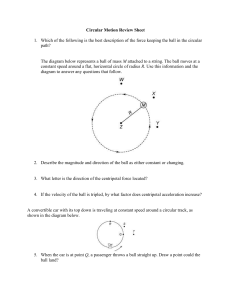Name ________________________________________________ Hour ________________
advertisement
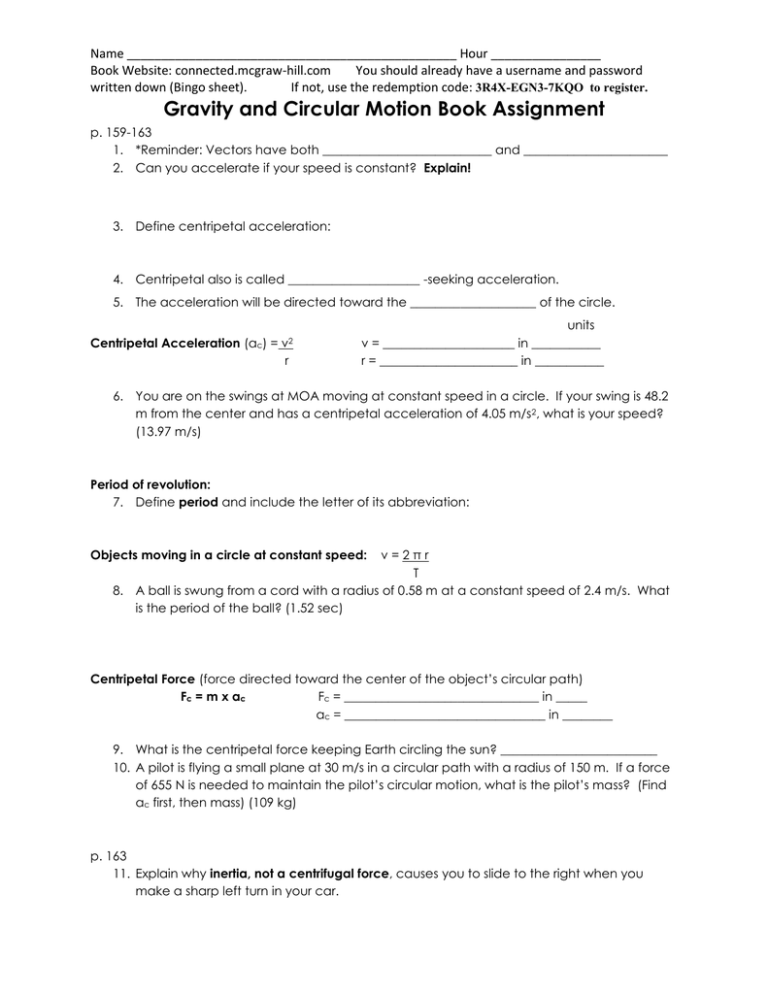
Name ________________________________________________ Hour ________________ Book Website: connected.mcgraw-hill.com You should already have a username and password written down (Bingo sheet). If not, use the redemption code: 3R4X-EGN3-7KQO to register. Gravity and Circular Motion Book Assignment p. 159-163 1. *Reminder: Vectors have both ___________________________ and _______________________ 2. Can you accelerate if your speed is constant? Explain! 3. Define centripetal acceleration: 4. Centripetal also is called _____________________ -seeking acceleration. 5. The acceleration will be directed toward the ____________________ of the circle. Centripetal Acceleration (ac) = v2 r units v = _____________________ in ___________ r = ______________________ in ___________ 6. You are on the swings at MOA moving at constant speed in a circle. If your swing is 48.2 m from the center and has a centripetal acceleration of 4.05 m/s2, what is your speed? (13.97 m/s) Period of revolution: 7. Define period and include the letter of its abbreviation: Objects moving in a circle at constant speed: v=2πr T 8. A ball is swung from a cord with a radius of 0.58 m at a constant speed of 2.4 m/s. What is the period of the ball? (1.52 sec) Centripetal Force (force directed toward the center of the object’s circular path) F c = m x ac Fc = _______________________________ in _____ ac = ________________________________ in ________ 9. What is the centripetal force keeping Earth circling the sun? _________________________ 10. A pilot is flying a small plane at 30 m/s in a circular path with a radius of 150 m. If a force of 655 N is needed to maintain the pilot’s circular motion, what is the pilot’s mass? (Find ac first, then mass) (109 kg) p. 163 11. Explain why inertia, not a centrifugal force, causes you to slide to the right when you make a sharp left turn in your car. Name ________________________________________________ Hour ________________ Book Website: connected.mcgraw-hill.com You should already have a username and password written down (Bingo sheet). If not, use the redemption code: 3R4X-EGN3-7KQO to register. p. 182 12. Isaac Newton determined that the force of _____________________ would act between any 2 objects in the universe and is known as the __________________________ force. 13. The gravitational force depends on the _________________ of the objects and the _________________ between them. Newton’s law of Universal Gravitation: yellow box on p. 182 and p. 184 for G Fg = G (m1m2) G = (a constant) =_____________________ Units = _______________ r2 m1=_____________ in _______ m2= ____________ in _____ r = __________________________ units = __________ 14. All objects attract one another. Why do we not observe the attraction between 2 objects on Earth? (p. 185) Problems: No book needed: 15. Mars has a mass of 6.4 x 1023 kg, and its moon Phobos has a mass of 9.6 x 1015 kg. If the gravitational force between them is 4.6 x 1015 N, how far apart are they? (9.44 x 106 m) 16. A 90 kg person stands 1.0 m from a 60 kg person. What is the gravitational force between them? (3.6 x 10-7 N) 17. Tom is twirling his huge set of keys (1.5 kg) for the building in a circle at the end of a cord at a constant speed. a. If the keys have a centripetal acceleration of 145 m/s2 and the cord has a length of 0.34 m, what is the speed of the keys? (7.02 m/s) b. What force is needed to maintain the circular motion? (217.5 N) c. How long will it take to make 1 revolution using this equation: v = 2 π r (T = the time for one revolution) (0.30 sec) T
